
Uzan Bazaar: The Heartbeat of Guwahati
Uzan Bazaar, located on the banks of the Brahmaputra River, is one of the oldest and most vibrant localities in Guwahati. This neighbourhood is a delightful mix of the old and new, where colonial-era buildings stand alongside modern establishments. The area is known for its bustling markets, historical landmarks, and scenic river views, making it a must-visit destination for any traveler exploring Guwahati. The bustling markets of Uzan Bazaar offer a sensory overload of sights, sounds, and smells. Here, you can find everything from fresh local produce to handcrafted souvenirs. The market is particularly famous for its fish market, where you can witness a variety of fish being sold straight from the Brahmaputra River. Don't miss out on sampling some local street food, which offers a delectable taste of Assamese cuisine. For history enthusiasts, Uzan Bazaar is home to several cultural and historical landmarks. The Umananda Temple, located on Peacock Island in the middle of the Brahmaputra River, is a short ferry ride away and offers a serene escape. The Nehru Park, with its beautifully landscaped gardens and statues, provides a peaceful respite from the hustle and bustle of the market area. As you explore Uzan Bazaar, take a leisurely stroll along the riverfront promenade to enjoy stunning views of the Brahmaputra River, especially during sunset. The area is also dotted with charming cafes and restaurants where you can relax and enjoy a meal while taking in the scenic beauty of the river. Whether you are a history buff, a foodie, or simply looking to soak in the local culture, Uzan Bazaar offers an enriching experience that encapsulates the essence of Guwahati.
Local tips in Uzan Bazaar
- Visit the fish market early in the morning for the freshest catch and a lively atmosphere.
- Take a ferry ride to Umananda Temple for a unique spiritual experience and panoramic river views.
- Try local Assamese street food like pithas and laru from the market stalls for an authentic taste.
- Walk along the riverfront promenade at sunset for stunning views and photo opportunities.
- Wear comfortable shoes as you will be doing a lot of walking around the markets and historical sites.
Uzan Bazaar: The Heartbeat of Guwahati
Uzan Bazaar, located on the banks of the Brahmaputra River, is one of the oldest and most vibrant localities in Guwahati. This neighbourhood is a delightful mix of the old and new, where colonial-era buildings stand alongside modern establishments. The area is known for its bustling markets, historical landmarks, and scenic river views, making it a must-visit destination for any traveler exploring Guwahati. The bustling markets of Uzan Bazaar offer a sensory overload of sights, sounds, and smells. Here, you can find everything from fresh local produce to handcrafted souvenirs. The market is particularly famous for its fish market, where you can witness a variety of fish being sold straight from the Brahmaputra River. Don't miss out on sampling some local street food, which offers a delectable taste of Assamese cuisine. For history enthusiasts, Uzan Bazaar is home to several cultural and historical landmarks. The Umananda Temple, located on Peacock Island in the middle of the Brahmaputra River, is a short ferry ride away and offers a serene escape. The Nehru Park, with its beautifully landscaped gardens and statues, provides a peaceful respite from the hustle and bustle of the market area. As you explore Uzan Bazaar, take a leisurely stroll along the riverfront promenade to enjoy stunning views of the Brahmaputra River, especially during sunset. The area is also dotted with charming cafes and restaurants where you can relax and enjoy a meal while taking in the scenic beauty of the river. Whether you are a history buff, a foodie, or simply looking to soak in the local culture, Uzan Bazaar offers an enriching experience that encapsulates the essence of Guwahati.
Iconic landmarks you can’t miss
Nehru Park
Discover tranquility and cultural richness at Nehru Park, Guwahati's green gem, perfect for relaxation and exploration.

Valley View
Experience breathtaking views and serene landscapes at Valley View, a must-visit attraction in Guwahati, Assam, perfect for nature lovers and photographers.

Sri Sri Ugratara Devalaya
Explore the spiritual heart of Guwahati at Sri Sri Ugratara Devalaya, a historic Hindu temple filled with rich traditions and serene beauty.

Uzan Bazar Park
Experience tranquility and breathtaking views at Uzan Bazar Park, a serene escape in the heart of Guwahati, Assam.

War Memorial
Explore the War Memorial in Guwahati—a serene tribute to valor, history, and the indomitable spirit of Assam's soldiers.

Belly View
Discover the breathtaking views of Guwahati from Belly View, a serene scenic spot perfect for relaxation and photography.
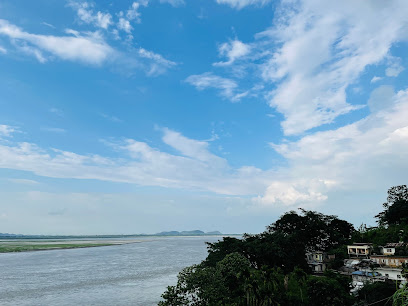
Uzanbazar
Explore Uzanbazar in Guwahati, a vibrant bazaar bursting with local culture, delicious street food, and unique handicrafts that capture Assam's rich heritage.
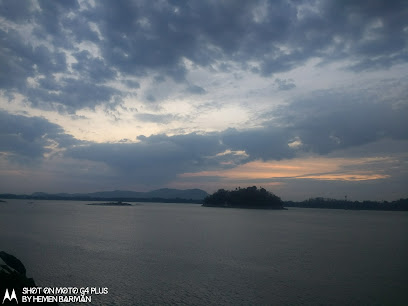
Hangout
Discover the vibrant dining experience at Hangout in Guwahati, where local flavors meet global cuisine in a warm and inviting atmosphere.
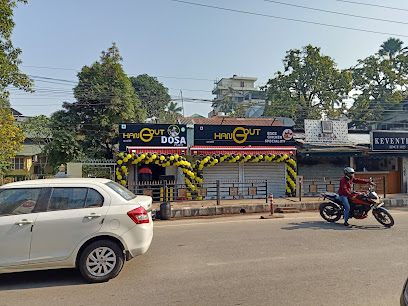
Jorpukhuri Park
Explore the beauty and tranquility of Jorpukhuri Park, a lush green oasis in the heart of Guwahati, perfect for relaxation and nature walks.
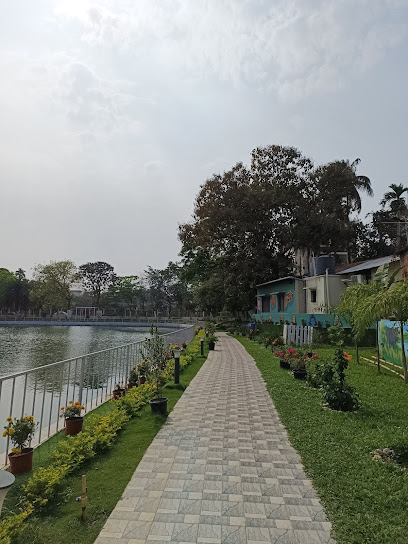
Sri Sri Hanuman Mandir, Uzan Bazar
Experience the divine tranquility of Sri Sri Hanuman Mandir in Uzan Bazar, a cultural gem in Guwahati, Assam, showcasing rich traditions and spirituality.

The Guwahati War Cemetery
Explore the Guwahati War Cemetery, a peaceful tribute to courage and sacrifice in the heart of Assam, offering a unique blend of history and tranquility.

Unmissable attractions to see
Guwahati Rope Way
Experience Guwahati from above: India's longest river ropeway offers stunning views of the Brahmaputra and the city skyline.
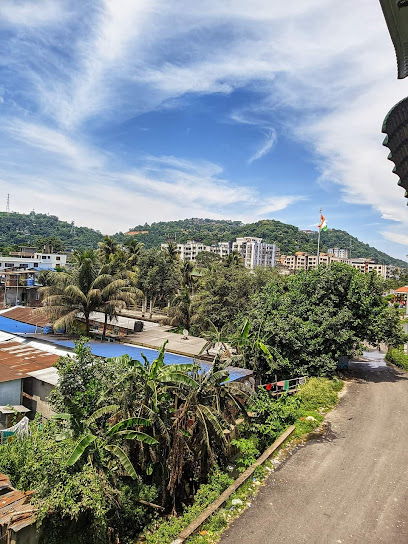
Shukreshwar Ghat/Park
Experience serenity and spirituality at Shukreshwar Ghat, Guwahati, with stunning views of the Brahmaputra River.
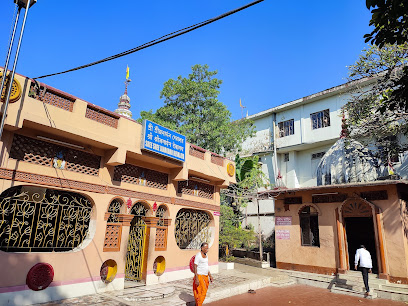
Sri Sri Ugratara Devalaya
A revered Shakti Peetha in Guwahati, Sri Sri Ugratara Devalaya enshrines the goddess Ugratara and is known for its unique traditions and serene atmosphere.
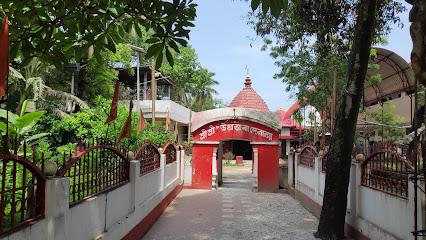
Uzan Bazar Park
Escape to tranquility at Uzan Bazar Park in Guwahati, offering scenic river views and a peaceful retreat in the city's historic heart.
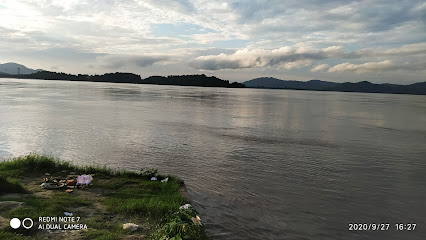
Essential places to dine
4 Seasons Restaurant
Discover diverse flavors at 4 Seasons Restaurant in Guwahati - where family-friendly dining meets exquisite Chinese, Italian, and fast food delights.
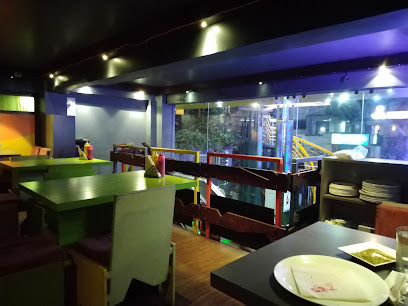
Fat Belly | Uzan Bazaar
Discover the vibrant flavors of Asian cuisine at Fat Belly in Uzan Bazaar—where every dish tells a story.
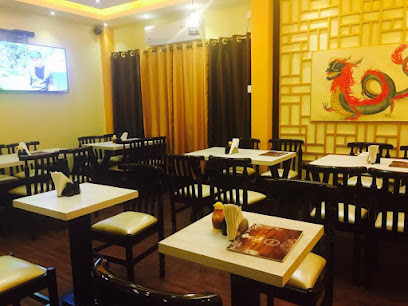
Café Bellevue
Discover culinary bliss at Café Bellevue in Guwahati - where delicious food meets breathtaking riverside views.
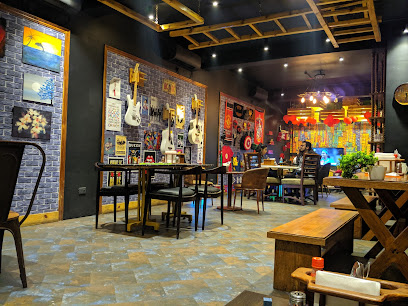
Grill Republica | Uzanbazar
Discover delicious fast food delights at Grill Republica in Uzanbazar - the ultimate spot for hamburger lovers in Guwahati!
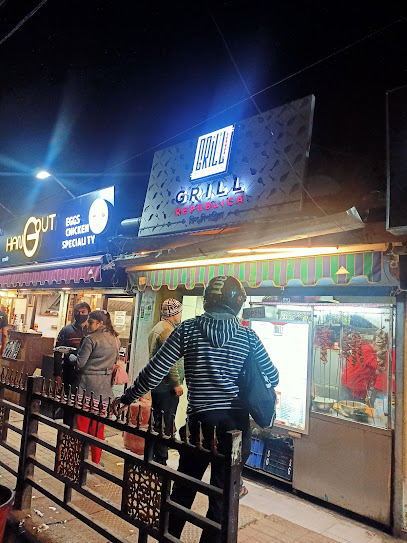
Changmai
Experience exquisite Asian cuisine at Changmai in Guwahati - where every dish tells a story.
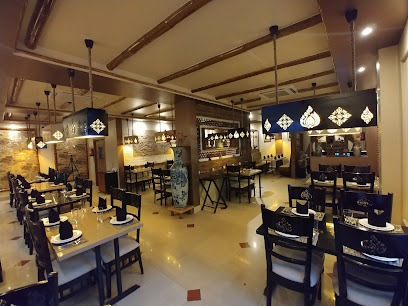
Hangout
Discover delicious Assamese cuisine at Hangout in Guwahati – where every meal is a celebration of flavor!

Roadside Storyz
Discover authentic Indian flavors at Roadside Storyz – your go-to destination for delicious fast food in Guwahati.

BayLeaf Guwahati- best restaurant near me, affordable restaurant, restaurant for birthday party, restaurant in uzan bazar
Experience the rich flavors of Assam at BayLeaf Guwahati - where tradition meets modern dining in an inviting atmosphere.
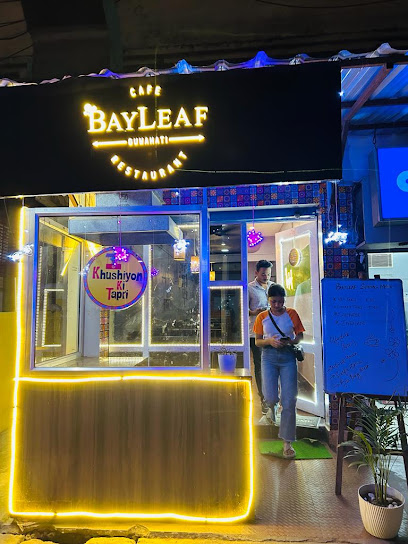
The Hunger Station
Experience authentic Assamese flavors at The Hunger Station in Guwahati – where every dish tells a story.
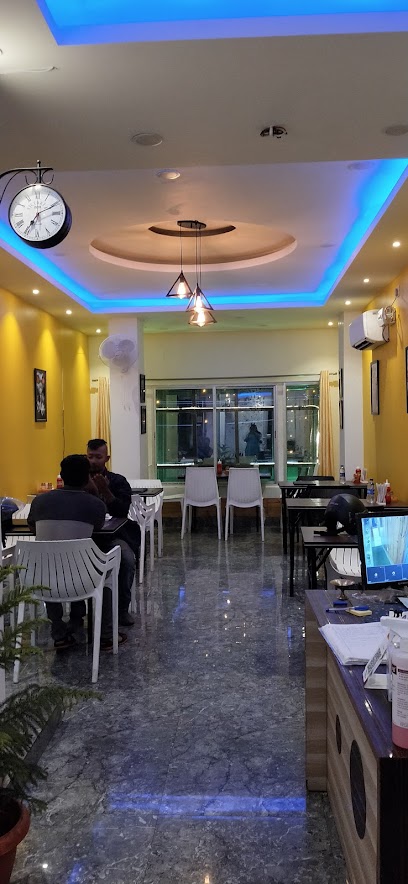
The Guwahatian Platter
Experience authentic Assamese flavors at The Guwahatian Platter - a family-friendly restaurant in the heart of Guwahati.
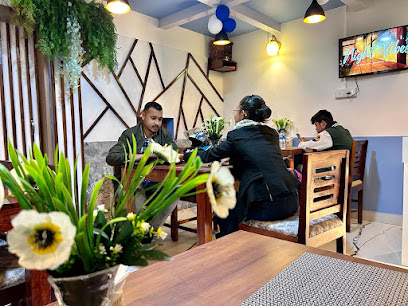
Markets, malls and hidden boutiques
ODC Uzanbazar
Discover ODC Uzanbazar in Guwahati: Your go-to grocery store for local flavors and fresh produce, all in one vibrant location.
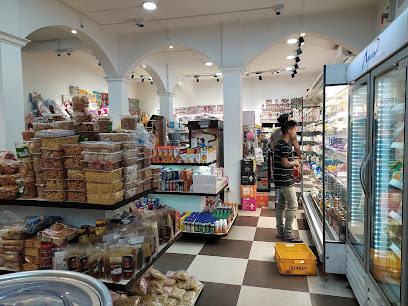
SHOP N SAVE
Explore the rich culinary heritage of Assam at Shop N Save, the go-to grocery store for locals and tourists alike in Guwahati.
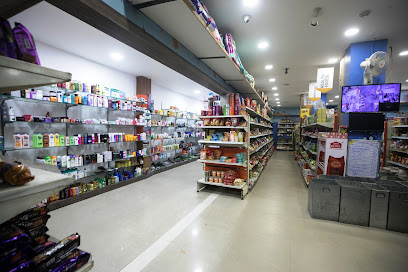
M-s Dimpa Store
Discover local flavors and essentials at M/s Dimpa Store, a premier grocery store and supermarket in Guwahati, Assam.
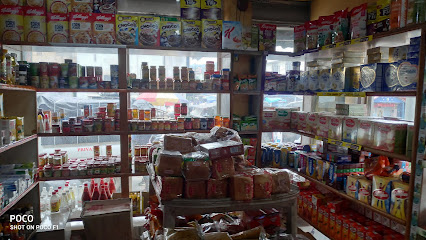
Unique Brand
Discover Unique Brand in Guwahati for high-quality uniforms tailored for schools and businesses, all in the heart of Fancy Bazaar.

Jogers - Crockery Shop | Gift Shop in Guwahati
Discover unique souvenirs and local artistry at Jogers in Guwahati, a charming gift shop and crockery store nestled in the heart of Fancy Bazaar.

Koina Boutique
Explore Koina Boutique: A treasure trove of handcrafted Assamese fashion and decor in the heart of Guwahati.
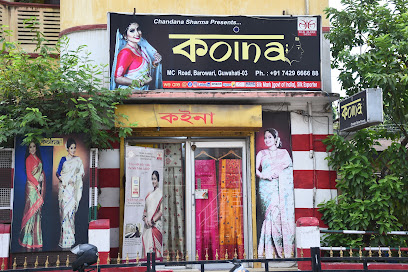
Uptown Mart
Discover the rich flavors of Assam at Uptown Mart, your ultimate grocery destination in Guwahati, featuring local delights and international favorites.
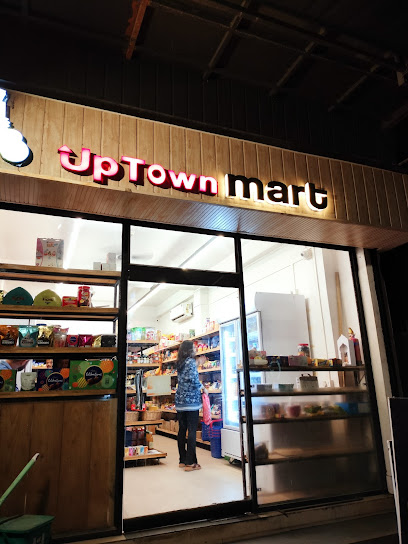
India Connections
Discover Assam's rich culture and craftsmanship at India Connections, a premier home goods and clothing accessories store in Guwahati.
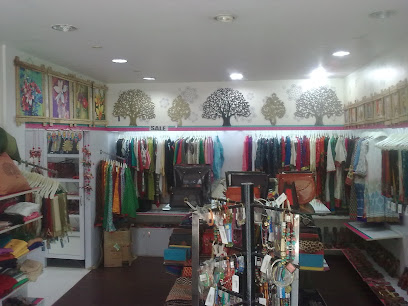
Fashion Hive
Explore the latest trends and local styles at Fashion Hive, Guwahati's premier clothing store for tourists and fashion lovers.
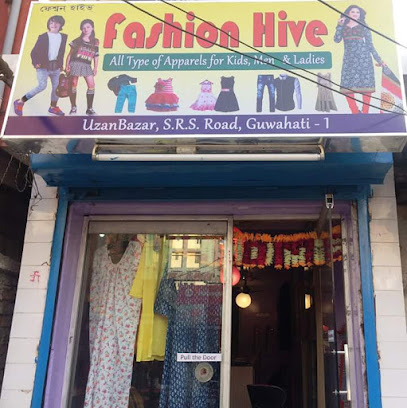
Upasana Store
Explore the vibrant Upasana Store in Guwahati, your go-to destination for local essentials and unique Assamese handicrafts.
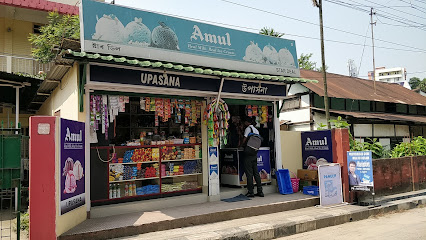
Essential bars & hidden hideouts
Hangout
Experience the vibrant culinary scene of Guwahati at Hangout, where local flavors meet international cuisine in a lively setting.

SAQUE BAR
Discover the lively ambiance of SAQUE BAR in Guwahati, a perfect spot for enjoying drinks and local nightlife.

Odin Bar & Restaurant
Discover the vibrant flavors of Assam at Odin Bar & Restaurant, where local cuisine meets global tastes in a lively atmosphere.

Saki Bar
Experience the vibrant nightlife of Guwahati at Saki Bar, where local flavors and warm hospitality create unforgettable memories.

THE JOLLY ANGLER
Experience the vibrant culture and lively ambiance at The Jolly Angler, Guwahati's premier pub offering a delightful culinary journey.

Maikhana Bar
Discover the lively ambiance and local flavors at Maikhana Bar, a must-visit destination for nightlife in Guwahati, Assam.

Latasca
Discover the perfect blend of local flavors and vibrant atmosphere at Latasca, Guwahati's premier bar and restaurant for tourists.

Brewvill (Cafe meets Bar)
Discover Brewvill, where the charm of a cafe meets the vibrancy of a bar in Guwahati, Assam. Enjoy drinks, good vibes, and a unique atmosphere.
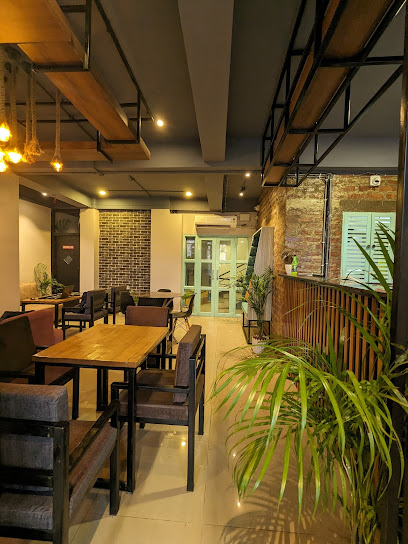
Lords bar
Experience the vibrant nightlife at Lords Bar, the perfect spot to unwind with drinks after exploring the cultural gems of Guwahati.

Satyam Tmt Bar
Discover the vibrant nightlife of Guwahati at Satyam Tmt Bar, where local flavors meet a cozy atmosphere for a refreshing experience.
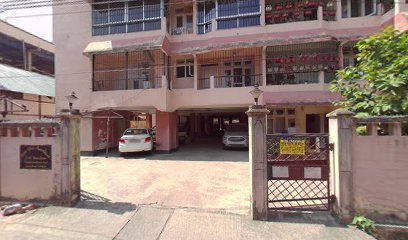
Local Phrases
-
- Helloनमस्ते
[Namaste] - Goodbyeअलविदा
[Alvida] - Yesहाँ
[Haan] - Noनहीं
[Nahi] - Please/You're welcomeकृपया
[Kripya] - Thank youधन्यवाद
[Dhanyavaad] - Excuse me/Sorryमाफ़ कीजिए
[Maaf kijiye] - How are you?आप कैसे हैं?
[Aap kaise hain?] - Fine. And you?ठीक हूँ। और आप?
[Theek hoon. Aur aap?] - Do you speak English?क्या आप अंग्रेज़ी बोलते हैं?
[Kya aap angrezi bolte hain?] - I don't understandमुझे समझ में नहीं आया
[Mujhe samajh mein nahi aaya]
- Helloनमस्ते
-
- I'd like to see the menu, pleaseकृपया मेन्यू दिखाएं
[Kripya menu dikhayein] - I don't eat meatमैं मांस नहीं खाता
[Main maans nahi khaata] - Cheers!चियर्स!
[Cheers!] - I would like to pay, pleaseकृपया भुगतान करना है
[Kripya bhugtan karna hai]
- I'd like to see the menu, pleaseकृपया मेन्यू दिखाएं
-
- Help!मदद!
[Madad!] - Go away!चले जाओ!
[Chale jao!] - Call the Police!पुलिस को बुलाओ!
[Police ko bulaao!] - Call a doctor!डॉक्टर को बुलाओ!
[Doctor ko bulaao!] - I'm lostमैं खो गया हूँ / गई हूँ
[Main kho gaya hoon / gayi hoon] - I'm illमुझे बीमारी है
[Mujhe bimaari hai]
- Help!मदद!
-
- I'd like to buy...मैं ... खरीदना चाहूँगा/चाहूँगी
[Main ... khareedna chaahunga/chaahungi] - I'm just lookingमैं बस देख रहा/रही हूँ
[Main bas dekh raha/rahi hoon] - How much is it?यह कितने का है?
[Yeh kitne ka hai?] - That's too expensiveयह बहुत महंगा है
[Yeh bahut mehnga hai] - Can you lower the price?क्या आप कीमत कम कर सकते हैं?
[Kya aap kimat kam kar sakte hain?]
- I'd like to buy...मैं ... खरीदना चाहूँगा/चाहूँगी
-
- What time is it?अब कितने बजे हैं?
[Ab kitne baje hain?] - It's one o'clockएक बजे हैं
[Ek baje hain] - Half past (10)दस बजे तक
[Das baje tak] - Morningसुबह
[Subah] - Afternoonदोपहर
[Dopahar] - Eveningशाम
[Shaam] - Yesterdayकल
[Kal] - Todayआज
[Aaj] - Tomorrowकल
[Kal] - 1एक
[Ek] - 2दो
[Do] - 3तीन
[Teen] - 4चार
[Char] - 5पाँच
[Paanch] - 6छह
[Chhah] - 7सात
[Saath] - 8आठ
[Aath] - 9नौ
[Nau] - 10दस
[Das]
- What time is it?अब कितने बजे हैं?
-
- Where's a/the...?... कहाँ है?
[... kahan hai?] - What's the address?पता क्या है?
[Pata kya hai?] - Can you show me (on the map)?क्या आप मुझे दिखा सकते हैं (नक्शे पर)?
[Kya aap mujhe dikha sakte hain (naksha par)?] - When's the next (bus)?अगली (बस) कब है?
[Agli (bus) kab hai?] - A ticket (to ....)एक टिकट (.... के लिए)
[Ek ticket (.... ke liye)]
- Where's a/the...?... कहाँ है?
History of Uzan Bazaar
-
Uzan Bazaar, one of the oldest markets in Guwahati, has its roots deeply embedded in the cultural and historical landscape of Assam. Established during the Ahom dynasty in the 17th century, it served as a vital trade hub connecting local merchants with traders from neighboring regions. The marketplace flourished as a center for the exchange of goods, including textiles, spices, and handicrafts, reflecting the rich cultural tapestry of the area.
-
The Ahom dynasty's reign from the 13th to the 19th centuries significantly influenced Uzan Bazaar's development. The dynasty fostered trade relations with neighboring kingdoms and established commerce routes that enhanced the market's prominence. Uzan Bazaar became a melting pot of diverse cultures, attracting merchants and artisans from across the region, which contributed to the socio-economic fabric of Guwahati.
-
During the British colonial period in the 19th century, Uzan Bazaar experienced a transformation as the British implemented new trade policies. The establishment of railways improved connectivity, allowing for the swift movement of goods. This shift led to increased commercial activity in the bazaar, introducing new products and altering traditional trading practices. The colonial era also saw the rise of various communities, further enriching the cultural diversity of Uzan Bazaar.
-
Uzan Bazaar is not only a commercial center but also a cultural hub. The market plays a pivotal role in hosting various festivals, such as Bihu and Durga Puja, which showcase the vibrant traditions of Assam. Local artisans and craftsmen display their work, and the bazaar becomes a lively venue for cultural exchange, bringing together people from different backgrounds to celebrate Assam's rich heritage.
-
In recent years, Uzan Bazaar has undergone modernization, with the advent of new businesses and infrastructure developments. However, this evolution comes with challenges, including the preservation of its historical essence amid rapid urbanization. Efforts are being made by local communities and government bodies to maintain the cultural significance of Uzan Bazaar while adapting to contemporary economic demands. This delicate balance reflects the ongoing narrative of Guwahati as a city that embraces both its history and modernity.
Uzan Bazaar Essentials
-
Uzan Bazaar is conveniently located in the heart of Guwahati. It is easily accessible from the Guwahati Airport, which is about 25 kilometers away. You can take a taxi or use ride-sharing apps to reach Uzan Bazaar. From the city’s railway station, it is approximately 3 kilometers away, and local auto-rickshaws or taxis can take you there in about 10 minutes. Buses also connect different neighborhoods in Guwahati to Uzan Bazaar, making it a well-linked area.
-
Uzan Bazaar is a bustling area best explored on foot to truly appreciate its vibrant markets and local life. Public transport options like auto-rickshaws are widely available for short distances. For longer trips, local buses are also an option, although they can be crowded. Bicycle rentals are available, allowing for a more leisurely exploration of the neighborhood and its surroundings.
-
Uzan Bazaar is generally safe for tourists, but like any urban area, it is wise to take precautions. Petty crimes like pickpocketing can occur in crowded places, especially during festivals or market hours. Avoid poorly lit alleys at night and stay vigilant with your belongings. While there are no specific high-crime areas targeting tourists, it’s advisable to remain cautious, especially in secluded spots.
-
In case of an emergency, dial 100 for police assistance or 102 for ambulance services. The nearest hospitals and clinics are within a short distance. It is advisable to carry a copy of your travel insurance and emergency contact information. Pharmacies are available throughout the Uzan Bazaar area for minor health concerns.
-
Fashion: Do dress modestly, especially in religious sites and when visiting local homes. Avoid shorts and revealing attire. Religion: Do respect local customs, and it is recommended to remove footwear when entering temples. Public Transport: Do be polite and offer your seat to elderly passengers. Don't eat or drink on public transport. Greetings: Do greet locals with 'Namaste' and a slight bow. Eating & Drinking: Do try local street food and accept food offerings, as refusing may offend. Don't drink tap water; always opt for bottled water.
-
To experience Uzan Bazaar like a local, visit the daily markets early in the morning for fresh produce and local handicrafts. Engage with shopkeepers, as they often have fascinating stories about the goods they sell. Try local delicacies such as 'pitha' (rice cakes) and 'khar' (a local dish) from street vendors. Don’t miss the nearby riverfront for a scenic walk and to enjoy the sunset over the Brahmaputra River.
Nearby Cities to Uzan Bazaar
-
Things To Do in Shillong
-
Things To Do in Trashigang
-
Things To Do in Mongar
-
Things To Do in Sylhet
-
Things To Do in Jakar
-
Things To Do in Trongsa
-
Things To Do in Bumthang
-
Things To Do in Itanagar
-
Things To Do in Wangdue Phodrang
-
Things To Do in Kohima
-
Things To Do in Punakha
-
Things To Do in Phuentsholing
-
Things To Do in Thimphu
-
Things To Do in Rangpur
-
Things To Do in Agartala





